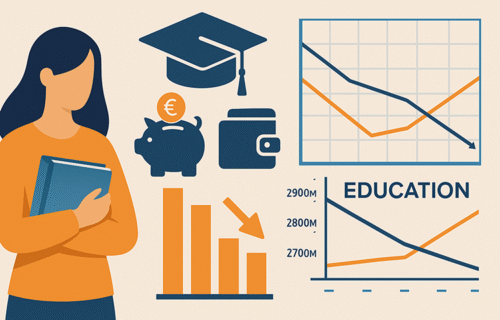At the beginning of the 2025/2026 school year, the education sector in Poland entered with a reduced level of outstanding debt, though households continue to face rising financial pressure linked to children’s learning expenses. According to BIG InfoMonitor, total arrears in the sector fell by nearly PLN 5 million year-on-year, to just under PLN 283 million at the end of June. Yet, despite this improved balance sheet, parents report ongoing difficulties covering the costs of out-of-school educational activities.
Data from the Register of Debtors BIG InfoMonitor and the BIK database show that around 2 percent of companies in the school and education sector fail to settle their financial obligations on time, a significantly lower share than the 5 percent recorded across the wider economy. Still, arrears remain substantial, particularly in non-formal education services such as language schools, tutoring, or extracurricular activities. For this segment, debts rose by PLN 4.5 million over the year, reaching PLN 194.2 million.
Household spending patterns reveal that educational costs are a persistent burden. Only 7 percent of Poles report saving money specifically to support their children’s education, compared with 17 percent who save for leisure and 15 percent who prioritize healthcare. According to BIG InfoMonitor’s chief analyst, Waldemar Rogowski, the limited willingness to save for children’s future stems from low levels of financial literacy, a comparatively low savings rate of 9.8 percent in Poland—among the lowest in the EU—and shifting social norms that place more emphasis on children’s independence.
Parents’ financial constraints directly affect demand for extracurricular education. Previous surveys indicate that one in three families reduced school-year spending, most often cutting extracurricular classes, tutoring, or school trips. The trend has eased in recent years, but the strain on household budgets remains visible. Rogowski notes that the pandemic initially boosted demand for tutoring due to dissatisfaction with remote learning, while more recently rising operating costs have weighed on the finances of education providers. What has remained constant, however, is that families continue to be required to increase their outlays on education, regardless of broader economic conditions.
